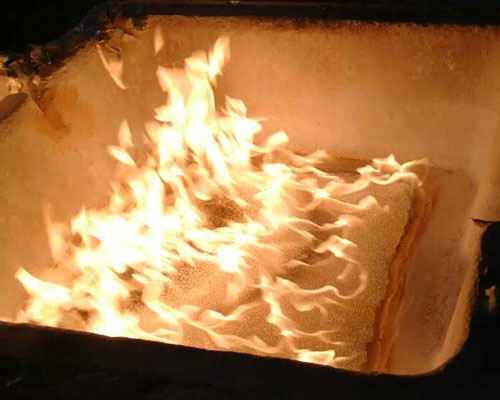Foundries Ceramic Foam Filters have simple operation and good short-term results. They are usually the most used filtration equipment in many foundries.
For some extremely critical applications, more expensive ceramic tube filters are usually used. For inclusion critical products, some cathouses use a deep bed filter. This normally involves filtering molten aluminum through a bed of varying size ceramic media. Whilst these are normally very efficient (typically 85% plus), they can be expensive to operate. This is due to the floor space required and the limited life of the filtration media. They typically require regular replacement and disposal.
No matter what kind of filter is used, care must be taken to ensure that the filter is not affected by excessive vibration or changes in the metal level. These “disturbances” will lead to the release of inclusions, which may eventually lead to inclusions in the finished product. Good process control downstream of the final filtration equipment is particularly important. If repairs are required, this should include careful cleaning preparations and special attention. In addition, operators in the foundry should take care to minimize turbulence in certain areas, such as turbulence around metal distribution bags.
Even with the best available filtering technology, the very dirty metal input will overwhelm you. Therefore, the importance of the correct handling of metals before filtering cannot be overstated. The cleaner the metal entering the filter, the finer the filter that can be used, resulting in “even cleaner” metal leaving the filter.
The three key parameters of foundries ceramic foam filters media are:
Filter area: the larger the area, the greater the potential metal flow. However, due to the danger of damage, large tiles may be difficult to handle.
Pore size: The smaller the pore size, the higher the efficiency of the filter. However, it is more likely to deter mid-term actors.
Thickness: The thicker the filter, the better the filtration efficiency. However, it may be more difficult to start it initially.

